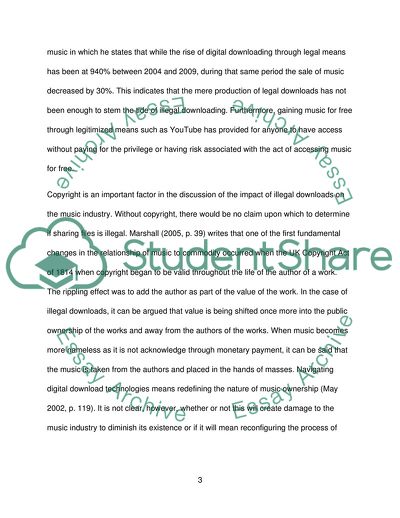Cite this document
(Illegal Downloads of Music - the Destruction of the Music Business Literature review Example | Topics and Well Written Essays - 2000 words, n.d.)
Illegal Downloads of Music - the Destruction of the Music Business Literature review Example | Topics and Well Written Essays - 2000 words. https://studentshare.org/music/1791769-critically-assess-the-proposition-that-illegal-downloading-is-destroying-the-music-industry
Illegal Downloads of Music - the Destruction of the Music Business Literature review Example | Topics and Well Written Essays - 2000 words. https://studentshare.org/music/1791769-critically-assess-the-proposition-that-illegal-downloading-is-destroying-the-music-industry
(Illegal Downloads of Music - the Destruction of the Music Business Literature Review Example | Topics and Well Written Essays - 2000 Words)
Illegal Downloads of Music - the Destruction of the Music Business Literature Review Example | Topics and Well Written Essays - 2000 Words. https://studentshare.org/music/1791769-critically-assess-the-proposition-that-illegal-downloading-is-destroying-the-music-industry.
Illegal Downloads of Music - the Destruction of the Music Business Literature Review Example | Topics and Well Written Essays - 2000 Words. https://studentshare.org/music/1791769-critically-assess-the-proposition-that-illegal-downloading-is-destroying-the-music-industry.
“Illegal Downloads of Music - the Destruction of the Music Business Literature Review Example | Topics and Well Written Essays - 2000 Words”. https://studentshare.org/music/1791769-critically-assess-the-proposition-that-illegal-downloading-is-destroying-the-music-industry.


